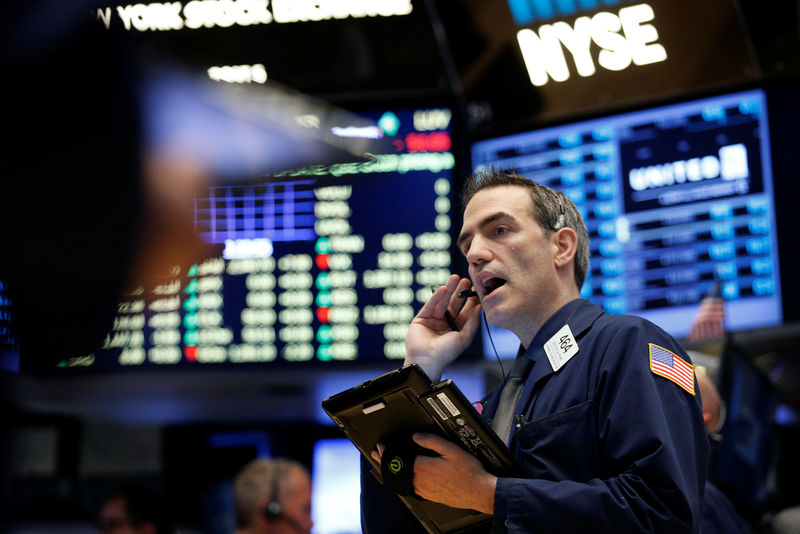By Chuck Mikolajczak and Saqib Iqbal Ahmed
NEW YORK (Reuters) - U.S. stocks have struggled since the timeline for the Trump administration's pro-growth agenda came into question, but investors appear confident that next week's deadline that could shut down the federal government will not become another market hurdle.
A new spending bill, or an extension of the current one, needs to pass next week to keep the government from running out of cash and having to partially shut down. Funding for a proposed border wall with Mexico or stripping federal resources from so-called sanctuary cities are among the thorny issues.
In a note to clients on Wednesday, Goldman Sachs (NYSE:GS) put the odds of a shutdown at only one-in-four when April draws to a close, with the risk rising to about 30 percent if lawmakers pass an extension and stall the debate into May.
Investors have worried of late that a shift in the Trump administration's focus to foreign policy could further delay legislation already in doubt after a much-heralded healthcare bill sank in Congress a month ago. However, options activity shows little concern that legislation could suffer even more over a shutdown.
The CBOE Volatility Index (VIX), an options-based measure of how much traders are willing to pay for protection against a sudden drop in the S&P 500 (SPX), shows little fear over a near-term shock to stocks.
The VIX, which rose to a five-month high of 16.28 on Monday amid rising geopolitical risks, has been quick to retreat. It fell 0.78 point to 14.15 on Thursday.
The relative calm is shared among many investors.
"No one thinks the government is going to shut down or that is something you would worry about as an investor," said Rick Meckler, president of LibertyView Capital Management in Jersey City, New Jersey. "It would be a real surprise to the investment community."
But some are not as optimistic. Reports Thursday that a new healthcare bill could be sent to the floor next week would leave even less time to hammer out a spending bill deal in time.
A shutdown could then further delay the implementation of Trump's policies that largely fueled the post-election stock market rally.
"The issue is right now the market is pricing in all these policies and reforms (will) happen, and if we can’t even sort out whether or not the government is operating, we are not going to get to those," said Amy Wu Silverman, equity derivatives strategist at RBC Capital Markets in New York. "I'm just very skeptical."
If she is right, volatility could spike and catch traders off guard. In that case, Silverman recommends using put options on the S&P 500 index that expire May 5 as a hedge.
Put options convey the right to sell shares at a fixed price in the future.
The average decline for the S&P 500 during government shutdowns is 0.6 percent according to Ryan Detrick, senior market strategist at LPL Financial in Charlotte, North Carolina.
During the 16-day shutdown in 2013 the S&P rose 3.1 percent. However, the index fell in seven of the eight sessions leading up to the last shutdown, for a decline of 2.6 percent.
"If nobody suspects it, that is usually the time it has the greatest effect on the market," said JJ Kinahan, chief market strategist at TD Ameritrade in Chicago.

"Not to say (the shutdown) can’t happen, I just don’t think people are taking it as seriously."